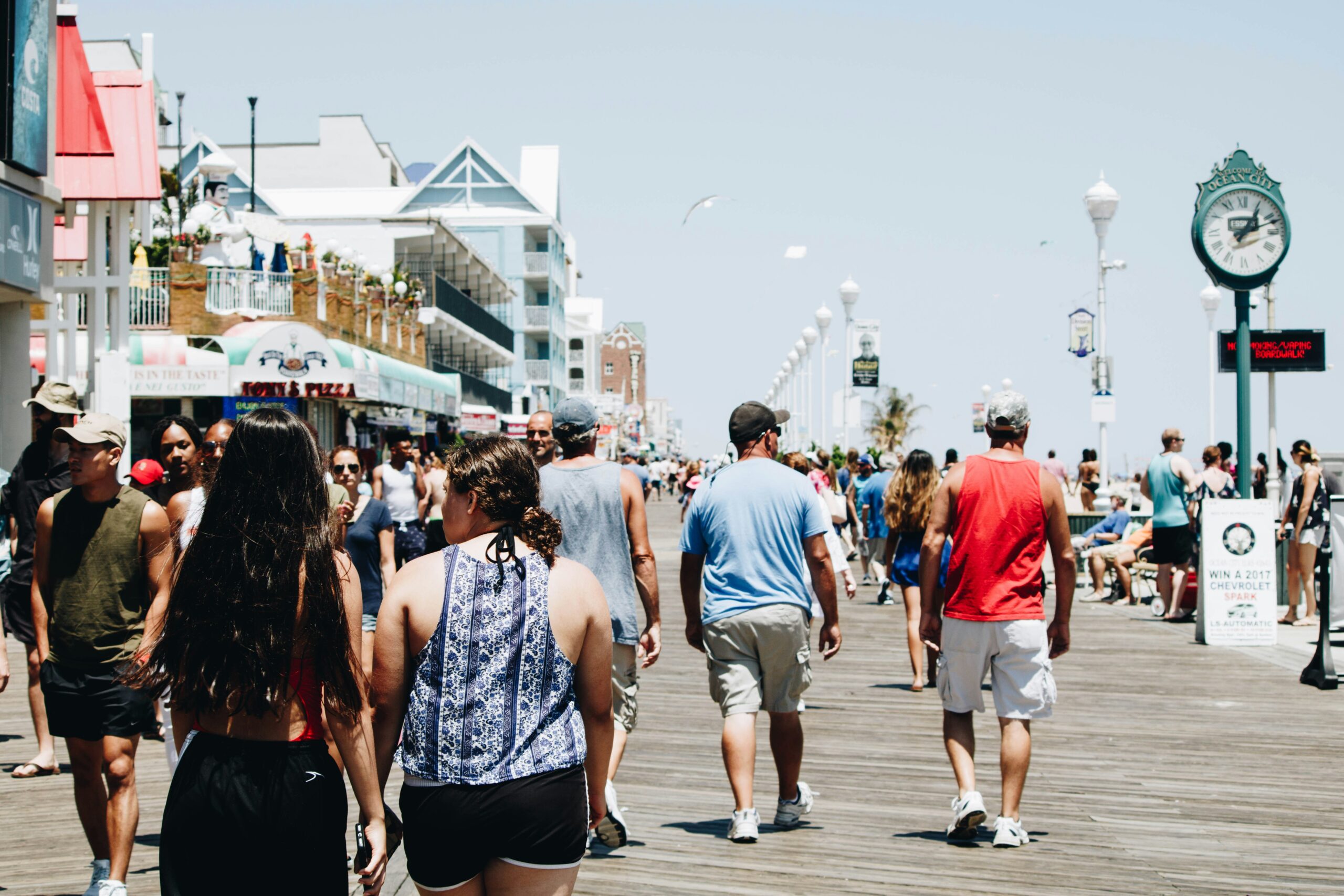It’s a cruel summer with you: overtourism and its dangers for local populations
Summer is upon us and Europe is bracing for another wave of tourism, or rather, overtourism. The World Tourism Organization (UNWTO) defines overtourism as “the impact of tourism on a destination, or parts thereof, that excessively influences perceived quality of life of citizens and/or quality of visitor experiences in a negative way”. While beneficial for the local economy, if excessive, tourism can become detrimental to a place and negatively affect the lives of residents.
The Covid-19 pandemic has heavily affected the sector, but things are looking up: for example, in 2023 Italy registered numbers higher than pre-pandemic levels. However, most of those visits registered where from foreign tourists: Italians, apparently, avoided vacationing in their own country because of prices. But it’s not just a matter of choosing your next vacation, sometimes it’s a matter of quality of life.
Overtourism and gentrification
Gentrification is the process by which wealthier individuals move into a traditionally lower-income area, leading to increased prices and property values, therefore displacing long-standing residents. While tourist do not permanently move in those areas, their presence is still a catalyst for this phenomenon, as both individuals and large corporation see tourism as an opportunity to boost business.
The first impacted sector is the housing market. Renting a house, or a room, per night through platform such as Airbnb or Booking is much more profitable that having a long-term tenant. Therefore, landlords tend to prefer this option, and the availability of regular rents for locals gets smaller and smaller with time. And of course, as supply decreases and demand increases, prices soar, making it sometimes impossible for residents to rent in the city they have lived all their lives, forcing them to move away.
Secondly, overtourism and gentrification are associated with cost-of-living increases. When you try to exclusively cater to the taste of tourist, there is usually an influx of big chains sweeping in and opening several new stores. This can put local businesses at risk, as they often cannot compete against giants such as Starbucks or Inditex, who are able to buy them out and replace them.
Spanish TikToker bellidamen has dedicated her entire profile to the fight against gentrification. In her profile, she shows the damage overtourism is causing to her city, Valencia, and how, due to it, what once where normal residential neighborhoods are now becoming what she calls “theme parks for tourists”, losing their original charm and becoming unlivable for residents. She focuses on how this has personally affected her and many other young Spaniards, as they are unable to move out their parents’ homes as they cannot find affordable rent.
The third aspect that gets affected are infrastructures. Popular destinations, especially if small, are not always able to sustain waves of mass tourism, and things like public transport systems get negatively impacted and overcrowded, resulting in great annoyance for locals.
Solutions implemented by local administrations
In order to curb these devastating consequences and try to regain some quality of life for residents, local administrations have tried to implement some, sometimes even quite drastic, solutions. Here are some examples.
Barcelona has decided to erase a particular bus route from Google Maps. Bus 116 goes through the neighborhood of La Salut and stops at the famous Park Güell. Because of La Salut’s conformation, the line can only be operated by small buses who only have a capacity of about 20 people. Because of this, it had become almost impossible for residents to take it, as it was always packed full of tourists trying to get to the popular park. Therefore, the city council asked Google to remove the line from Maps, and according to residents, this measure has greatly improved the situation.
Venice has decided to charge an entrance ticket during bank holidays to reduce affluence, as those are usually the busiest day for the city. The cost is 5 euros, and tourists that spend the night in the city are not charged, as they already pay a small tax when booking accommodation.
But of course, Europe is not the only continent struggling with such phenomenon. Kyoto recently banned tourism form entering the Geisha district of Gion. With it’s narrow streets and picturesque alleyways, the neighborhood was not able to sustain the big influx of tourism it was experiencing. Furthermore, the visitors’ unruly and disrespectful behavior was coming in the way of the geishas that nowadays still operate in the district.
In Hanoi, authorities are trying to shut down its popular “Train Street”. In the heart of its Old Quarter, the railway cuts directly though a street bustling with cafes and restaurants. It became a popular attraction thanks to social media, and many tourists flock to it, attracted by the idea of having a drink while sitting next to a passing by train. However, the street is very narrow, and therefore many dangers arise. Authorities tried to stop it by setting up barricades and revoking licenses for businesses, but many of them continue to operate as their livelihoods depends on it.
Mitigating the effects
As the Train Street example shows, overtourism is a complex issue that poses several challenges. Sometimes the income generated by tourism is vital for a city, and therefore its own residents push against measures aimed at reducing it. On the other hand, rent prices, overcrowding and increased cost of living actively make residents’ lives worst and drive them away.
Regulating short-term rentals could be a first step in the right direction. It could improve the offer of long-term rentals for residents and redirect money to already existing hospitality facilities.
Authorities must be careful because, if not adequately managed, overtourism could lead to undermining the very qualities that make destinations unique. By balancing the needs of tourists and residents, communities can thrive sustainably without having to give up income opportunities.



